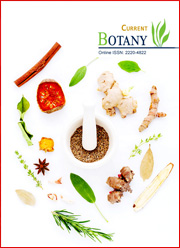Vermicompost induced growth and yield performance of capsicum (Capsicum annuum L.) at sustainable rooftop farming system
DOI:
https://doi.org/10.25081/jp.2023.v15.7914Keywords:
Capsicum, Vermicompost, Rooftop Gardening, Sustainable FarmingAbstract
Rooftop farming is gaining rapid popularity in urban areas, especially since the beginning of the global COVID-19 pandemic. For housebound people rooftop farming is not only a way of potentially management of their time but also the execution of creativity. For rooftop farming vermicompost (VC) can be the most sustainable media for growing high value fruits and vegetables crops. In this regard, an experiment was carried out as a rooftop farming system at Charfassion upzila in the Bhola district of Bangladesh to observe the growth and yield performance of capsicum (Capsicum annuum) grown in different combinations of vermicompost in the winter season (2020-2021). Different agronomic and yield parameters were measured at the intervals of 30, 60, and 90 days and at the final harvest of 120 days after sowing. Among the measured parameters a mixed type of performance was achieved from varied doses of vermicompost applications and inorganic fertilizer treatment. Among the measured valuable parameters; the highest fruit length (8.85 cm), fruit diameter (10.3 cm), no. of fruits (9.51 plant-1), total wt. of fresh fruits (405.32 g/plant), fresh fruits yield (11.26 t ha-1), no. of branches (30.0 plant-1), stem girth (6.3 cm), root fresh wt. (8.80 g/plant), stem fresh wt. (23.35 g/plant), petiole fresh wt. (6.09 g/plant), total fresh biomass (65.54 g/plant), dry wt. of fruits (76.91 g/plant), dry wt. of total fruits: biomass ratio (7.35) and benefit-cost ratio (12.40), respectively, were observed in T5 (20t VC ha-1). So, from the overall findings of this study T5 with 20t VC application ha-1 is recommended to achieve better growth and yield of capsicum through the sustainable way of rooftop and urban farming systems and to improve soil fertility status.
Downloads
References
Alaboz, P., Isildar, A. A., Mujdeci, M., & Senol, H. (2017). Effects of different vermicompost and soil moisture levels on pepper (Capsicum annuum) grown and some soil properties. Yuzuncu Yil University Journal of Agricultural Sciences, 27(1), 30-36.
Alauddin, M., Mohsin, G. M., Ali, A. H. M. Z., & Rahman, M. K. (2021). Effects of poultry litter and chemical fertilizers on growth and yield of field grown sunflower (Helianthus annuus L.). Dhaka University of Journal of Biological Sciences, 30(1), 49-57. https://doi.org/10.3329/dujbs.v30i1.51808
Aminifard, M. H., & Bayat, H. (2016). Effect of vermicompost on fruit yield and quality of bell pepper. International Journal of Horticultural Science Technological, 3(2), 221-229. https://doi.org/10.22059/ijhst.2017.209130.129
Arora, V. K., Singh, C. B., Sidhu, A. S., & Thind, S. S. (2011). Irrigation, tillage and mulching effects on Soybean yield and water productivity in relation to soil texture. Agricultural Water Management, 98(4), 563-568. https://doi.org/10.1016/j.agwat.2010.10.004
BARC. (2018). Fertilizer Recommendation Guide-2018. Bangladesh Agricultural Research Council. Purana Palton, Dhaka: People Press and Publications.
Belliturk, K., Adiloglu, S., Solmaz, Y., Zahmacioglu, A., & Adiloglu, A. (2017). Effects of increasing doses of vermicompost applications on P and K contents of pepper (Capsicum annuum L.) and eggplant (Solanum melongena L.). Journal of Advanced Agricultural Technologies, 4(4), 372-375. https://doi.org/10.18178/joaat.4.4.372-375
Bilal, H., Aman, F., Ullah, I., Awan, A. A., Ullah, S., Khan, S., Aamir, M., Khan, M. A., & Rome, B. (2019). Response of chilli varieties to various sources of organic fertilizers. ARPN Journal of Agricultural and Biological Science, 13(12), 15-24.
Ganeshnauth, V., Jaikishun, S., Ansari, A. A., & Homenauth, O. (2018). The Effect of Vermicompost and Other Fertilizers on the Growth and Productivity of Pepper Plants in Guyana. In S. Hussmann (Eds.), Automation in Agriculture London, UK: IntechOpen. https://doi.org/10.5772/intechopen.73262
Gangadhar, K., Devakumar, N., Vishwajith, & Lavanya, G. (2020). Growth, yield and quality parameters of chilli (Capsicum annuum L.) as influenced by application of different organic manures and decomposers. International Journal of Chemical Studies, 8(1), 473-482. https://doi.org/10.22271/chemi.2020.v8.i1g.8299
Godavari, S., Gaikwad, Soniya, C., Vilhekar, P. N., Mane, & Vaidya, E. R. (2017). Impact of organic manures and hydrophilic polymer hydrogel on conservation of moisture and sunflower production under rainfed condition. Advance Research Journal of Crop Improvement, 8(1), 31-35. https://doi.org/10.15740/HAS/ARJCI/8.1/31-35
Jaipaul, Sharma, S., Dixit, A. K., & Sharma, A. K. (2011). Growth and yield of capsicum (Capsicum annuum) and garden pea (Pisum sativum) as influenced by organic manures and biofertilizers. Indian Journal of Agricultural Science, 81(7), 637-642.
Palaniappan, S. P., & Annadurai, K. (1999). Organic Farming, Theory and Practices. (1st ed.). Jodhpur, India: Scientific Publishers.
Pariari, A., & Khan, S. (2013). Integrated nutrient management of chilli (Capsicum annuum L.) in Gangetic alluvial plains. Journal of Crop and Weed, 9(2), 128-130.
Rahman, H., & Akter, A. (2019). Effect of kitchen waste compost and vermicompost in combination with chemical fertilizer on the production of Capsicum. Research & Reviews: Journal of Botany, 8(2), 7-15.
Reddy, G. C., Venkatachalapathi, V., Reddy, G. P. D., & Hebbar, S. S. (2017). Study of different organic manure combination on growth and yield of chilli (Cassicum annuum L.). Plant Archives, 17(1), 472-474.
Rekha, G. S., Kaleena, P. K., Emumalai, D., Srikumaran, M. P., & Maheswari, V. M. (2018). Effects of vermicompost and plant growth enhancers on the exo-morphological features of Capsicum annum (L.) Hepper. International Journal of Recycling of Organic Waste in Agriculture, 7, 83-88. https://doi.org/10.1007/s40093-017-0191-5
Sharma, S., Sharma, A. K., & Jaipaul, (2010). Performance of capsicum genotypes for horticultural traits and disease incidence under protected structure via-a-via open conditions. Indian Journal of Horticulture, 67(4), 581-583.
Tong, Z., Quan, G., Wan, L., He, F., & Li, X. (2019). The Effect of Fertilizers on Biomass and Biodiversity on a Semi-Arid Grassland of Northern China. Sustainability, 11(10), 2854. https://doi.org/10.3390/su11102854
Zaman, M. M., Rahman, M. A., Chowdhury, T., & Chowdhury, M. A. H. (2018). Effects of combined application of chemical fertilizer and vermicompost on soil fertility, leaf yield and sativoside content of stevia. Journal of the Bangladesh Agricultural University, 16(1), 73-81. https://doi.org/10.3329/jbau.v16i1.36484
Published
How to Cite
Issue
Section
Copyright (c) 2023 Md. Amirul Alam, Md. Alauddin, Moomtahina Rahman, Md. Alauddin, Md. Sajedur Rahman, G. M. Mohsin, Md. Khalilur Rahman

This work is licensed under a Creative Commons Attribution 4.0 International License.





 .
.